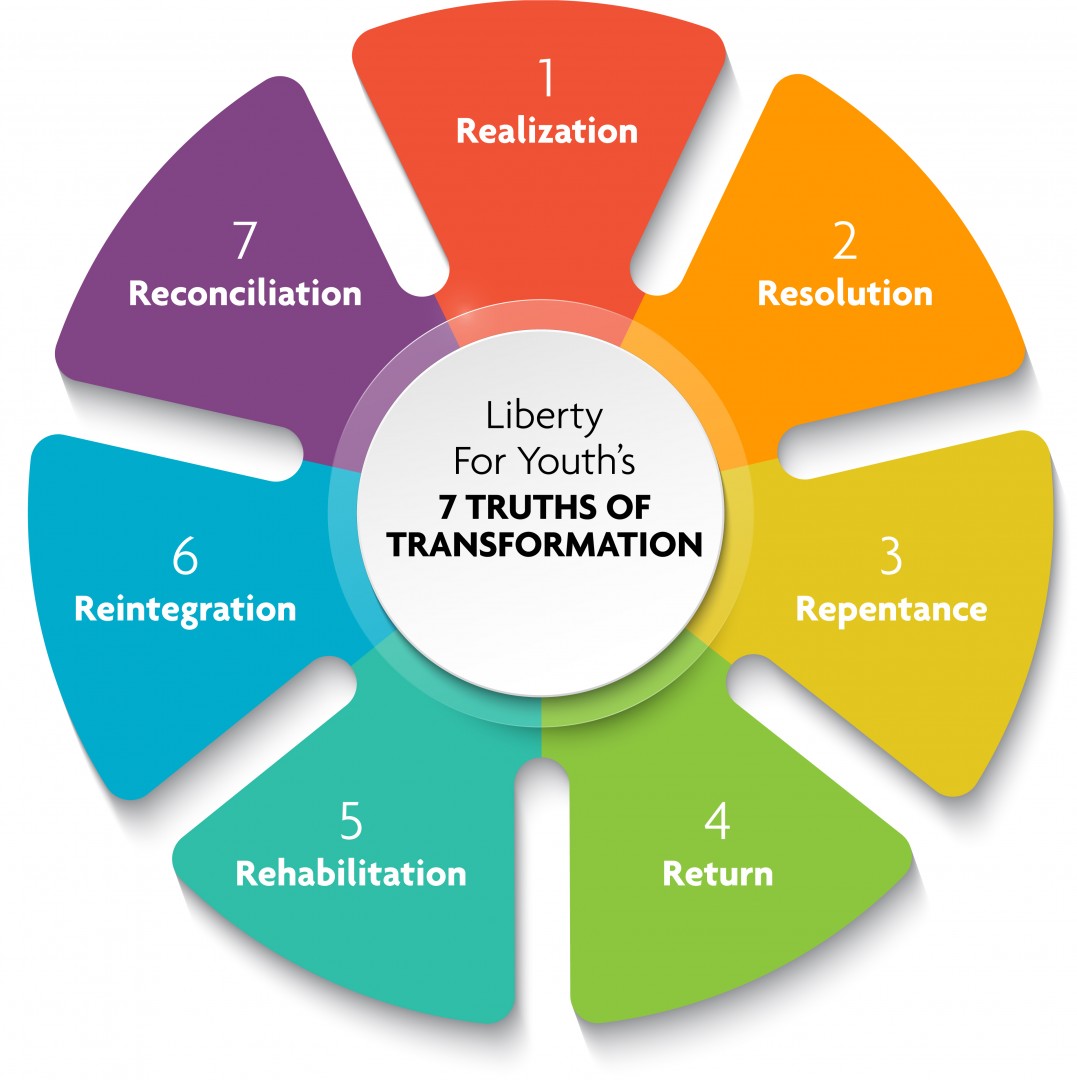Established in 2003, Liberty For Youth (LFY) is a not-for-profit charitable organization. Our mission is to provide prevention and intervention mentoring programs for youth aged 12 to 25, in the Hamilton and surrounding areas.
Our team employs an integrative mentoring model aimed at bridging the gaps of support youth at-risk experience. We focus on building inner character, enhancing life skills, and motivating at-risk youth to become positive, contributing members of their communities.
Our programs welcome disadvantaged, marginalized, and at-risk youth from all backgrounds—regardless of faith, ethnicity, or nationality—who face various challenges. These challenges may include poverty, substance abuse, unsafe home environments, gang involvement, or navigating life on probation.
We provide a supportive environment where at-risk youth can feel accepted, regardless of their past mistakes or current struggles.

Our Mentors guide the youth through various transformational stages represented by seven words starting with “R.” Mentors build rapport with the youth and create a safe space for them to express their inner feelings, the good the bad and the ugly. But before any real progress can be made, the youth must first come to the (1) REALIZATION that he/she wants to make a change in their life.
Once that realization dawns, the youth are encouraged to make a (2) RESOLUTION to take action on that realization. As they start to act in new ways they are often faced with the feeling of (3) REPENTANCE for the previous behaviour. Now they are truly at a turning point.
Momentum begins to build as the youth actualize their intentions and (4) RETURN to the mainstream. During this (5) REHABILITATION period, the youth are given many opportunities to accomplish things that help them to build self-esteem and self-respect.
But (6) REINTEGRATION is not always easy. Things don’t always go smoothly. Not everyone is willing to forgive or forget the youth’s past transgressions. Again, the mentor is there to support the youth, as they move into this stage of re-establishing themselves in the community.
The ultimate goal of our mentors is to see the youth experience (7) RECONCILIATION; with themselves, their families and the community they chose to live in.

